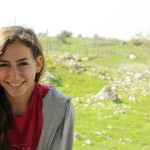My reading
Haftarah Parashat Mattot – Mas’ei
Jeremiah 2:4 -28. 3:4
2:4 שִׁמְע֥וּ דְבַר־יְהוָ֖ה בֵּ֣ית יַעֲקֹ֑ב וְכָֽל־מִשְׁפְּח֖וֹת בֵּ֥ית יִשְׂרָאֵֽל׃
2:5 כֹּ֣ה׀ אָמַ֣ר יְהוָ֗ה מַה־מָּצְא֨וּ אֲבוֹתֵיכֶ֥ם בִּי֙ עָ֔וֶל כִּ֥י רָחֲק֖וּ מֵעָלָ֑י וַיֵּֽלְכ֛וּ אַחֲרֵ֥י הַהֶ֖בֶל וַיֶּהְבָּֽלוּ׃
2:6 וְלֹ֣א אָמְר֔וּ אַיֵּ֣ה יְהוָ֔ה הַמַּעֲלֶ֥ה אֹתָ֖נוּ מֵאֶ֣רֶץ מִצְרָ֑יִם הַמּוֹלִ֨יךְ אֹתָ֜נוּ בַּמִּדְבָּ֗ר בְּאֶ֨רֶץ עֲרָבָ֤ה וְשׁוּחָה֙ בְּאֶ֙רֶץ֙ צִיָּ֣ה וְצַלְמָ֔וֶת בְּאֶ֗רֶץ לֹֽא־עָ֤בַר בָּהּ֙ אִ֔ישׁ וְלֹֽא־יָשַׁ֥ב אָדָ֖ם שָֽׁם׃
2:7 וָאָבִ֤יא אֶתְכֶם֙ אֶל־אֶ֣רֶץ הַכַּרְמֶ֔ל לֶאֱכֹ֥ל פִּרְיָ֖הּ וְטוּבָ֑הּ וַתָּבֹ֙אוּ֙ וַתְּטַמְּא֣וּ אֶת־אַרְצִ֔י וְנַחֲלָתִ֥י שַׂמְתֶּ֖ם לְתוֹעֵבָֽה׃
2:8 הַכֹּהֲנִ֗ים לֹ֤א אָֽמְרוּ֙ אַיֵּ֣ה יְהוָ֔ה וְתֹפְשֵׂ֤י הַתּוֹרָה֙ לֹ֣א יְדָע֔וּנִי וְהָרֹעִ֖ים פָּ֣שְׁעוּ בִ֑י וְהַנְּבִיאִים֙ נִבְּא֣וּ בַבַּ֔עַל וְאַחֲרֵ֥י לֹֽא־יוֹעִ֖לוּ הָלָֽכוּ׃
2:9 לָכֵ֗ן עֹ֛ד אָרִ֥יב אִתְּכֶ֖ם נְאֻם־יְהוָ֑ה וְאֶת־בְּנֵ֥י בְנֵיכֶ֖ם אָרִֽיב׃
2:10 כִּ֣י עִבְר֞וּ אִיֵּ֤י כִתִּיִּים֙ וּרְא֔וּ וְקֵדָ֛ר שִׁלְח֥וּ וְהִֽתְבּוֹנְנ֖וּ מְאֹ֑ד וּרְא֕וּ הֵ֥ן הָיְתָ֖ה כָּזֹֽאת׃
2:11 הַהֵימִ֥יר גּוֹי֙ אֱלֹהִ֔ים וְהֵ֖מָּה לֹ֣א אֱלֹהִ֑ים וְעַמִּ֛י הֵמִ֥יר כְּבוֹד֖וֹ בְּל֥וֹא יוֹעִֽיל׃
2:12 שֹׁ֥מּוּ שָׁמַ֖יִם עַל־זֹ֑את וְשַׂעֲר֛וּ חָרְב֥וּ מְאֹ֖ד נְאֻם־יְהוָֽה׃
2:13 כִּֽי־שְׁתַּ֥יִם רָע֖וֹת עָשָׂ֣ה עַמִּ֑י אֹתִ֨י עָזְב֜וּ מְק֣וֹר׀ מַ֣יִם חַיִּ֗ים לַחְצֹ֤ב לָהֶם֙ בֹּאר֔וֹת בֹּארֹת֙ נִשְׁבָּרִ֔ים אֲשֶׁ֥ר לֹא־יָכִ֖לוּ הַמָּֽיִם׃
2:14 הַעֶ֙בֶד֙ יִשְׂרָאֵ֔ל אִם־יְלִ֥יד בַּ֖יִת ה֑וּא מַדּ֖וּעַ הָיָ֥ה לָבַֽז׃
2:15 עָלָיו֙ יִשְׁאֲג֣וּ כְפִרִ֔ים נָתְנ֖וּ קוֹלָ֑ם וַיָּשִׁ֤יתוּ אַרְצוֹ֙ לְשַׁמָּ֔ה עָרָ֥יו נצתה [נִצְּת֖וּ] מִבְּלִ֥י יֹשֵֽׁב׃
2:16 גַּם־בְּנֵי־נֹ֖ף ותחפנס [וְתַחְפַּנְחֵ֑ס] יִרְע֖וּךְ קָדְקֹֽד׃
2:17 הֲלוֹא־זֹ֖את תַּעֲשֶׂה־לָּ֑ךְ עָזְבֵךְ֙ אֶת־יְהוָ֣ה אֱלֹהַ֔יִךְ בְּעֵ֖ת מוֹלִיכֵ֥ךְ בַּדָּֽרֶךְ׃
2:18 וְעַתָּ֗ה מַה־לָּךְ֙ לְדֶ֣רֶךְ מִצְרַ֔יִם לִשְׁתּ֖וֹת מֵ֣י שִׁח֑וֹר וּמַה־לָּךְ֙ לְדֶ֣רֶךְ אַשּׁ֔וּר לִשְׁתּ֖וֹת מֵ֥י נָהָֽר׃
2:19 תְּיַסְּרֵ֣ךְ רָעָתֵ֗ךְ וּמְשֻֽׁבוֹתַ֙יִךְ֙ תּוֹכִחֻ֔ךְ וּדְעִ֤י וּרְאִי֙ כִּי־רַ֣ע וָמָ֔ר עָזְבֵ֖ךְ אֶת־יְהוָ֣ה אֱלֹהָ֑יִךְ וְלֹ֤א פַחְדָּתִי֙ אֵלַ֔יִךְ נְאֻם־אֲדֹנָ֥י יְהוִ֖ה צְבָאֽוֹת׃
2:20 כִּ֣י מֵעוֹלָ֞ם שָׁבַ֣רְתִּי עֻלֵּ֗ךְ נִתַּ֙קְתִּי֙ מוֹסְרֹתַ֔יִךְ וַתֹּאמְרִ֖י לֹ֣א אעבד [אֶעֱב֑וֹר] כִּ֣י עַֽל־כָּל־גִּבְעָ֞ה גְּבֹהָ֗ה וְתַ֙חַת֙ כָּל־עֵ֣ץ רַעֲנָ֔ן אַ֖תְּ צֹעָ֥ה זֹנָֽה׃
2:21 וְאָֽנֹכִי֙ נְטַעְתִּ֣יךְ שֹׂרֵ֔ק כֻּלֹּ֖ה זֶ֣רַע אֱמֶ֑ת וְאֵיךְ֙ נֶהְפַּ֣כְתְּ לִ֔י סוּרֵ֖י הַגֶּ֥פֶן נָכְרִיָּֽה׃
2:22 כִּ֤י אִם־תְּכַבְּסִי֙ בַּנֶּ֔תֶר וְתַרְבִּי־לָ֖ךְ בֹּרִ֑ית נִכְתָּ֤ם עֲוֹנֵךְ֙ לְפָנַ֔י נְאֻ֖ם אֲדֹנָ֥י יְהוִֽה׃
2:23 אֵ֣יךְ תֹּאמְרִ֞י לֹ֣א נִטְמֵ֗אתִי אַחֲרֵ֤י הַבְּעָלִים֙ לֹ֣א הָלַ֔כְתִּי רְאִ֤י דַרְכֵּךְ֙ בַּגַּ֔יְא דְּעִ֖י מֶ֣ה עָשִׂ֑ית בִּכְרָ֥ה קַלָּ֖ה מְשָׂרֶ֥כֶת דְּרָכֶֽיהָ׃
2:24 פֶּ֣רֶה׀ לִמֻּ֣ד מִדְבָּ֗ר בְּאַוַּ֤ת נפשו [נַפְשָׁהּ֙] שָׁאֲפָ֣ה ר֔וּחַ תַּאֲנָתָ֖הּ מִ֣י יְשִׁיבֶ֑נָּה כָּל־מְבַקְשֶׁ֙יהָ֙ לֹ֣א יִיעָ֔פוּ בְּחָדְשָׁ֖הּ יִמְצָאֽוּנְהָ׃
2:25 מִנְעִ֤י רַגְלֵךְ֙ מִיָּחֵ֔ף וגורנך [וּגְרוֹנֵ֖ךְ] מִצִּמְאָ֑ה וַתֹּאמְרִ֣י נוֹאָ֔שׁ ל֕וֹא כִּֽי־אָהַ֥בְתִּי זָרִ֖ים וְאַחֲרֵיהֶ֥ם אֵלֵֽךְ׃
2:26 כְּבֹ֤שֶׁת גַּנָּב֙ כִּ֣י יִמָּצֵ֔א כֵּ֥ן הֹבִ֖ישׁוּ בֵּ֣ית יִשְׂרָאֵ֑ל הֵ֤מָּה מַלְכֵיהֶם֙ שָֽׂרֵיהֶ֔ם וְכֹהֲנֵיהֶ֖ם וּנְבִיאֵיהֶֽם׃
2:27 אֹמְרִ֨ים לָעֵ֜ץ אָ֣בִי אַ֗תָּה וְלָאֶ֙בֶן֙ אַ֣תְּ ילדתני [יְלִדְתָּ֔נוּ] כִּֽי־פָנ֥וּ אֵלַ֛י עֹ֖רֶף וְלֹ֣א פָנִ֑ים וּבְעֵ֤ת רָֽעָתָם֙ יֹֽאמְר֔וּ ק֖וּמָה וְהוֹשִׁיעֵֽנוּ׃
2:28 וְאַיֵּ֤ה אֱלֹהֶ֙יךָ֙ אֲשֶׁ֣ר עָשִׂ֣יתָ לָּ֔ךְ יָק֕וּמוּ אִם־יוֹשִׁיע֖וּךָ בְּעֵ֣ת רָעָתֶ֑ךָ כִּ֚י מִסְפַּ֣ר עָרֶ֔יךָ הָי֥וּ אֱלֹהֶ֖יךָ יְהוּדָֽה׃
2:29 לָ֥מָּה תָרִ֖יבוּ אֵלָ֑י כֻּלְּכֶ֛ם פְּשַׁעְתֶּ֥ם בִּ֖י נְאֻם־יְהוָֽה׃
2:30 לַשָּׁוְא֙ הִכֵּ֣יתִי אֶת־בְּנֵיכֶ֔ם מוּסָ֖ר לֹ֣א לָקָ֑חוּ אָכְלָ֧ה חַרְבְּכֶ֛ם נְבִֽיאֵיכֶ֖ם כְּאַרְיֵ֥ה מַשְׁחִֽית׃
2:31 הַדּ֗וֹר אַתֶּם֙ רְא֣וּ דְבַר־יְהוָ֔ה הֲמִדְבָּ֤ר הָיִ֙יתִי֙ לְיִשְׂרָאֵ֔ל אִ֛ם אֶ֥רֶץ מַאְפֵּ֖לְיָ֑ה מַדּ֜וּעַ אָמְר֤וּ עַמִּי֙ רַ֔דְנוּ לֽוֹא־נָב֥וֹא ע֖וֹד אֵלֶֽיךָ׃
2:32 הֲתִשְׁכַּ֤ח בְּתוּלָה֙ עֶדְיָ֔הּ כַּלָּ֖ה קִשֻּׁרֶ֑יהָ וְעַמִּ֣י שְׁכֵח֔וּנִי יָמִ֖ים אֵ֥ין מִסְפָּֽר׃
2:33 מַה־תֵּיטִ֥בִי דַּרְכֵּ֖ךְ לְבַקֵּ֣שׁ אַהֲבָ֑ה לָכֵן֙ גַּ֣ם אֶת־הָרָע֔וֹת למדתי [לִמַּ֖דְתְּ] אֶת־דְּרָכָֽיִךְ׃
2:34 גַּ֤ם בִּכְנָפַ֙יִךְ֙ נִמְצְא֔וּ דַּ֛ם נַפְשׁ֥וֹת אֶבְיוֹנִ֖ים נְקִיִּ֑ים לֹֽא־בַמַּחְתֶּ֥רֶת מְצָאתִ֖ים כִּ֥י עַל־כָּל־אֵֽלֶּה׃
2:35 וַתֹּֽאמְרִי֙ כִּ֣י נִקֵּ֔יתִי אַ֛ךְ שָׁ֥ב אַפּ֖וֹ מִמֶּ֑נִּי הִנְנִי֙ נִשְׁפָּ֣ט אוֹתָ֔ךְ עַל־אָמְרֵ֖ךְ לֹ֥א חָטָֽאתִי׃
2:36 מַה־תֵּזְלִ֥י מְאֹ֖ד לְשַׁנּ֣וֹת אֶת־דַּרְכֵּ֑ךְ גַּ֤ם מִמִּצְרַ֙יִם֙ תֵּב֔וֹשִׁי כַּאֲשֶׁר־בֹּ֖שְׁתְּ מֵאַשּֽׁוּר׃
2:37 גַּ֣ם מֵאֵ֥ת זֶה֙ תֵּֽצְאִ֔י וְיָדַ֖יִךְ עַל־רֹאשֵׁ֑ךְ כִּֽי־מָאַ֤ס יְהֹוָה֙ בְּמִבְטַחַ֔יִךְ וְלֹ֥א תַצְלִ֖יחִי לָהֶֽם׃
3:1 לֵאמֹ֡ר הֵ֣ן יְשַׁלַּ֣ח אִ֣ישׁ אֶת־אִשְׁתּוֹ֩ וְהָלְכָ֨ה מֵאִתּ֜וֹ וְהָיְתָ֣ה לְאִישׁ־אַחֵ֗ר הֲיָשׁ֤וּב אֵלֶ֙יהָ֙ ע֔וֹד הֲל֛וֹא חָנ֥וֹף תֶּחֱנַ֖ף הָאָ֣רֶץ הַהִ֑יא וְאַ֗תְּ זָנִית֙ רֵעִ֣ים רַבִּ֔ים וְשׁ֥וֹב אֵלַ֖י נְאֻם־יְהֹוָֽה׃
3:2 שְׂאִֽי־עֵינַ֨יִךְ עַל־שְׁפָיִ֜ם וּרְאִ֗י אֵיפֹה֙ לֹ֣א שגלת [שֻׁכַּ֔בְּתְּ] עַל־דְּרָכִים֙ יָשַׁ֣בְתְּ לָהֶ֔ם כַּעֲרָבִ֖י בַּמִּדְבָּ֑ר וַתַּחֲנִ֣יפִי אֶ֔רֶץ בִּזְנוּתַ֖יִךְ וּבְרָעָתֵֽךְ׃
3:3 וַיִּמָּנְע֣וּ רְבִבִ֔ים וּמַלְק֖וֹשׁ ל֣וֹא הָיָ֑ה וּמֵ֨צַח אִשָּׁ֤ה זוֹנָה֙ הָ֣יָה לָ֔ךְ מֵאַ֖נְתְּ הִכָּלֵֽם׃
3:4 הֲל֣וֹא מֵעַ֔תָּה קראתי [קָרָ֥את] לִ֖י אָבִ֑י אַלּ֥וּף נְעֻרַ֖י אָֽתָּה׃
4:1 אִם־תָּשׁ֨וּב יִשְׂרָאֵ֧ל׀ נְאֻם־יְהוָ֛ה אֵלַ֖י תָּשׁ֑וּב וְאִם־תָּסִ֧יר שִׁקּוּצֶ֛יךָ מִפָּנַ֖י וְלֹ֥א תָנֽוּד׃
4:2 וְנִשְׁבַּ֙עְתָּ֙ חַי־יְהוָ֔ה בֶּאֱמֶ֖ת בְּמִשְׁפָּ֣ט וּבִצְדָקָ֑ה וְהִתְבָּ֥רְכוּ ב֛וֹ גּוֹיִ֖ם וּב֥וֹ יִתְהַלָּֽלוּ׃










